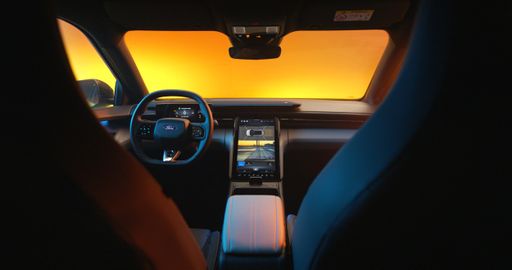CUPRA Tavascan vs Ford Capri - Differences and prices compared
Compare performance (340 HP vs 340 HP), boot space and price (45700 £ vs 36300 £ ) at a glance. Find out which car is the better choice for you – CUPRA Tavascan or Ford Capri?
Costs and Efficiency:
Price and efficiency are often the first things buyers look at. Here it becomes clear which model has the long-term edge – whether at the pump, the plug, or in purchase price.
Ford Capri has a clearly perceptible advantage in terms of price – it starts at 36300 £ , while the CUPRA Tavascan costs 45700 £ . That’s a price difference of around 9378 £.
In terms of energy consumption, the advantage goes to the Ford Capri: with 13.80 kWh per 100 km, it’s somewhat more efficient than the CUPRA Tavascan with 15.90 kWh. That’s a difference of about 2.10 kWh.
As for electric range, the Ford Capri performs slightly better – achieving up to 627 km, about 74 km more than the CUPRA Tavascan.
Engine and Performance:
Under the bonnet, it becomes clear which model is tuned for sportiness and which one takes the lead when you hit the accelerator.
Both models deliver identical power – 340 HP each.
In acceleration from 0 to 100 km/h, the Ford Capri is slight quicker – completing the sprint in 5.30 s, while the CUPRA Tavascan takes 5.50 s. That’s about 0.20 s faster.
There’s no difference in top speed – both reach 180 km/h.
Both models offer the same torque – 679 Nm.
Space and Everyday Use:
Beyond pure performance, interior space and usability matter most in daily life. This is where you see which car is more practical and versatile.
Both vehicles offer seating for 5 people.
In curb weight, Ford Capri is to a small extent lighter – 1914 kg compared to 2178 kg. The difference is around 264 kg.
In terms of boot space, the Ford Capri offers minimal more room – 572 L compared to 540 L. That’s a difference of about 32 L.
When it comes to payload, Ford Capri to a small extent takes the win – 587 kg compared to 522 kg. That’s a difference of about 65 kg.
Who wins the race in the data check?
The Ford Capri is decisively ahead in the objective data comparison.
This result only shows which model scores more points on paper – not which of the two cars feels right for you.
Costs and Consumption
View detailed analysis
Engine and Performance
View detailed analysis
Dimensions and Body
View detailed analysis
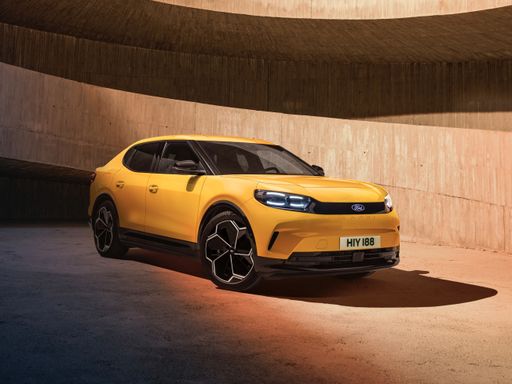
Ford Capri
CUPRA Tavascan
The CUPRA Tavascan is a striking electric crossover that blends aggressive, sporty design with surprising everyday practicality, pairing a coupe-like silhouette with SUV versatility. It feels lively and engaging on the road while offering premium touches inside, making it a compelling choice for buyers who want attitude without sacrificing comfort.
details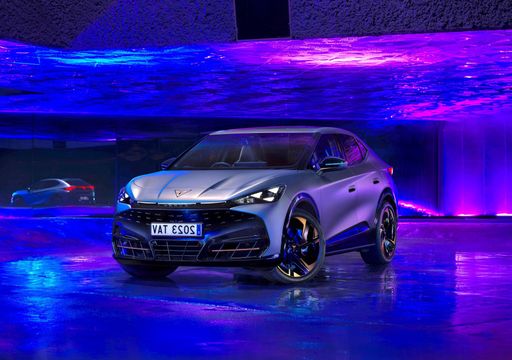
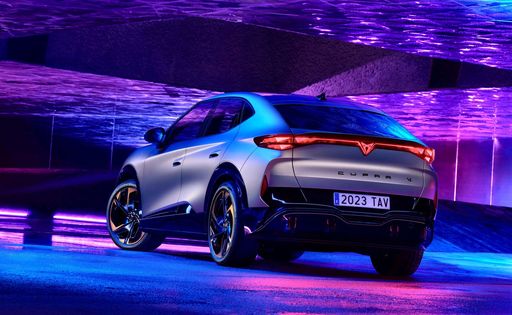
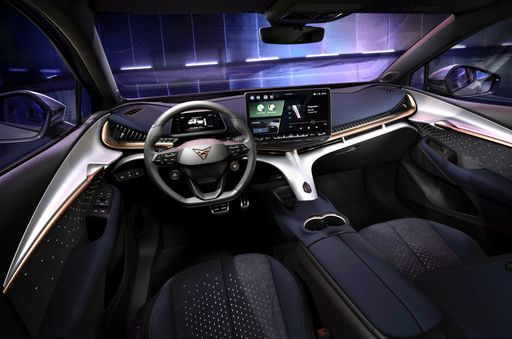
Costs and Consumption |
|
|---|---|
|
Price
45700 - 49600 £
|
Price
36300 - 50900 £
|
|
Consumption L/100km
-
|
Consumption L/100km
-
|
|
Consumption kWh/100km
15.9 - 17.1 kWh
|
Consumption kWh/100km
13.8 - 16.4 kWh
|
|
Electric Range
513 - 553 km
|
Electric Range
374 - 627 km
|
|
Battery Capacity
77 kWh
|
Battery Capacity
52 - 79 kWh
|
|
co2
0 g/km
|
co2
0 g/km
|
|
Fuel tank capacity
-
|
Fuel tank capacity
-
|
Dimensions and Body |
|
|---|---|
|
Body Type
SUV
|
Body Type
SUV
|
|
Seats
5
|
Seats
5
|
|
Doors
5
|
Doors
5
|
|
Curb weight
2178 - 2273 kg
|
Curb weight
1914 - 2174 kg
|
|
Trunk capacity
540 L
|
Trunk capacity
567 - 572 L
|
|
Length
4644 mm
|
Length
4634 mm
|
|
Width
1861 mm
|
Width
1872 mm
|
|
Height
1597 mm
|
Height
1626 mm
|
|
Max trunk capacity
-
|
Max trunk capacity
1505 - 1510 L
|
|
Payload
507 - 522 kg
|
Payload
570 - 587 kg
|
Engine and Performance |
|
|---|---|
|
Engine Type
Electric
|
Engine Type
Electric
|
|
Transmission
Automatic
|
Transmission
Automatic
|
|
Transmission Detail
Reduction Gearbox
|
Transmission Detail
Reduction Gearbox
|
|
Drive Type
Rear-Wheel Drive, All-Wheel Drive
|
Drive Type
Rear-Wheel Drive, All-Wheel Drive
|
|
Power HP
286 - 340 HP
|
Power HP
170 - 340 HP
|
|
Acceleration 0-100km/h
5.5 - 6.8 s
|
Acceleration 0-100km/h
5.3 - 8.7 s
|
|
Max Speed
180 km/h
|
Max Speed
160 - 180 km/h
|
|
Torque
545 - 679 Nm
|
Torque
310 - 679 Nm
|
|
Number of Cylinders
-
|
Number of Cylinders
-
|
|
Power kW
210 - 250 kW
|
Power kW
125 - 250 kW
|
|
Engine capacity
-
|
Engine capacity
-
|
General |
|
|---|---|
|
Model Year
2024
|
Model Year
2024 - 2025
|
|
CO2 Efficiency Class
A
|
CO2 Efficiency Class
A
|
|
Brand
CUPRA
|
Brand
Ford
|
What drivetrain options does the CUPRA Tavascan have?
Available configurations include Rear-Wheel Drive or All-Wheel Drive.





